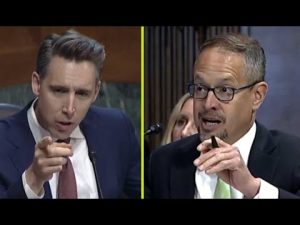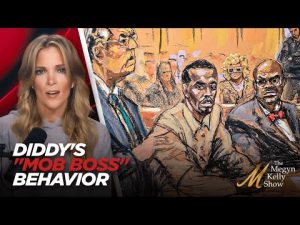In the latest twist in the ongoing saga of political tensions, a former FBI director has found himself in the spotlight, and it’s not for any of the accomplishments that might be found in a job performance review. Instead, James Comey, the man who once led the bureau in scrutinizing the Trump campaign, has reportedly made a social media post that many have interpreted as a threat against the president. This eyebrow-raising episode sheds light on the often theatrical landscape of American politics, where words can ignite fires faster than a match in a gasoline factory.
The timing of Comey’s post couldn’t be any more conspicuous. With the release of a new book just around the corner, he stirred the pot by sharing a cryptic photo featuring numbers that some have linked to violent undertones. Such symbolism has triggered a chorus of reactions, particularly among conservatives who believe he should be held accountable for what they perceive as a serious breach of decorum, if not a straightforward threat. In a world rife with heated rhetoric and political outbursts, it seems Comey has logged yet another entry in the bizarre annals of political theater.
What truly leaves conservatives scratching their heads is the liberal defense of Comey. To them, it appears farcical that advocates of peace and tolerance might rally behind someone who seemingly flirts with the notion of violence against a sitting president. Conservatives have long felt that their calls for law and order have been drowned out amidst cries of intolerance, particularly when it comes to perceived threats from the left. The irony of Comey enjoying liberal support, despite potentially inciting violence, has not gone unnoticed.
Adding even more spice to the stew is Comey’s own history. His storied career includes a stint as a prosecutor for organized crime, yet now finds him inserting himself into the capitol’s chaotic conversations. Conservatives argue that given his past, it’s highly implausible he didn’t know exactly what his post would convey or how it would be interpreted. They view it as a cynical manipulation of language from someone who has had the playbook on crime and threats for decades, raising eyebrows about his motivations and implications for the political landscape.
The commentary surrounding this incident has only further amplified calls from conservatives for equitable treatment of political figures. They are frustrated by what they see as a double standard—where individuals on the left seem to evade accountability while others bear the brunt of scrutiny for far less. If there was ever a chance to rectify this apparent imbalance, this incident featuring Comey could be a pivotal moment. Conservatives find it crucial that the legal system treats threats against the president with the seriousness they deserve, emphasizing the need for a robust response to any calls that might incite violence, regardless of the sender’s political affiliation.
In the grand theater of Washington politics, this episode serves as yet another reminder that words have weight, and the mediums used to convey them can relay far more than the speaker may intend. As James Comey steps into the limelight, the stakes continue to climb, leaving one question hanging in the air: who will face real consequences for their words, and will justice truly be blind in this increasingly polarized arena?







